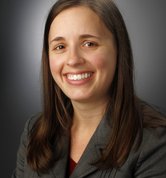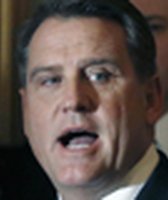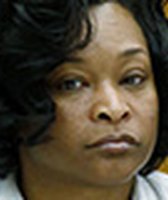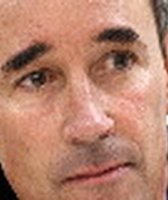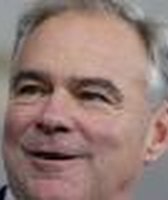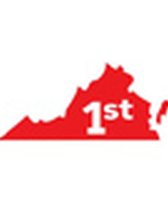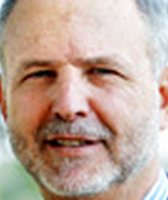Stand up for the facts!
Our only agenda is to publish the truth so you can be an informed participant in democracy.
We need your help.
I would like to contribute
Gov. Bob McDonnell delivered his final State of the Commonwealth address on Wednesday night, saying his accomplishments in improving Virginians’ lives far outweighed mistakes he and his family made in accepting $160,000 in gifts and loans from a Richmond businessman.
"I have prayed fervently that the collective good we have done over the past four years will not be obscured by this ordeal," McDonnell said, referring to his relationship with Jonnie Williams.
Many claims McDonnell’s made during his speech were familiar to PolitiFact Virginia, having been the subjects of previous Truth-O-Meters and Bob-O-Meters. Here’s a quick review of some of the statements:
"Traffic in Northern Virginia had become the worst in the country."
McDonnell made this claim while citing his efforts to improve transportation, including last year’s passage of a series of tax and fees increases that are expected to generate about $880 million annually for roads.
The governor bases his often-used statement on the findings of a widely-cited study on congestion by the Texas Transportation Institute at Texas A&M University. That study, considered the industry standard for measuring traffic bottlenecks around the country, found in 2011 and again in 2013 that Washington DC area has the worst traffic in the U.S. That region includes the nation’s capital as well as the parts of Maryland and Northern Virginia.
"The gas tax was raising only 46 percent of what it did in 1986."
In overhauling transportation levies, McDonnell offered this as proof that a percentage tax, instead of the 17.5 cents per gallon, made more sense. The governor argued for increasing the sales tax across the board and applying it to gasoline sales for the first time. The general assembly agreed to a deal that eliminated the excise tax, increased the sales tax from 5.0 to 5.3 percent and applied a 3.5 percent tax on gasoline and a 6 percent tax on diesel at the wholesale level. This made Virginia the only state without some sort of excise tax on gasoline.
The 17.5 cents per gallon paid in 2013 until the new law went into effect had the same purchasing power as 8 cents in 1987, when the excise tax was put in place, which is a 46 percent decline. At the same time, Virginia had seen an increase in the number of vehicles on its roads, but also an increase in their efficiency to the point where they will soon use one-quarter of the gasoline per gallon that cars and trucks did in 1986.
"We came into office facing record budget shortfalls totaling $6 billion."
This has been a frequent theme for McDonnell. The $6 billion figure was a cumulative potential deficit from July 2008 through 2010, but Virginia must balance its budget. Actual budget cuts totaled about $2.34 billion in reductions to state agencies and state employees’ benefits. About $2.91 billion was covered through transfers and bookkeeping tricks, much of which have been refunded or corrected. And the commonwealth received $1.9 billion in one-time federal stimulus payments, including $1.1 billion to Medicaid. Without the Medicaid stimulus payment, the total of all the maneuvers is about $6 billion.
"We helped secure your retirement by making the largest deposit into our pension system in history: $2.2 billion in 2012."
Between years of neglect and a $620 million diversion from state pension contributions to balance the state’s general fund during the recession, the Virginia Retirement System was $19.9 billion short of assets it needed to pay out pensions for the coming 85 years in 2012. That year, McDonnell proposed that the state deposit a $600 million payment to pensions for state employees and $600 million for teacher pensions. In addition, local governments were required to ante up $1 billion for teacher pensions. The legislature passed the plan.
Before, the highest contribution came to $1.72 billion in the 2007-08 budget years. Even adjusted for inflation, the contribution during McDonnell’s term was the highest.
"Over the last four years we’ve conserved 232,000 acres of open space."
What McDonnell didn’t say is that he promised during his 2009 gubernatorial campaign to preserve 400,000 acres. The administration says the tight economy made a major conservation incentive -- Virginia's Land Preservation Tax Credit -- less attractive to landowners. The program provides tax credits for landowners who donate their property, or give the state an easement to it, for conservation. The tax break amounts to 40 percent of the appraised value of the land.
"And don’t forget, we reopened 19 rest stops and increased the highway speed limit to 70 mph."
The state closed 19 of the 42 rest stops on interstates in 2009 amid a budget crunch. McDonnell pledged that, if elected, all of them would be open by the 90th day of his administration. He met that promise one day ahead of schedule.
In 2010, the legislature approved McDonnell’s plan to raise the speed limit to 70 mph on rural stretches of interstates. That year, the state posted 70 mph zones covering 61 percent of Virginia's interstates.
"The Top Jobs Higher Education Act of 2011 created the blueprint for the future and put us on track to award an additional 100,000 degrees over 15 years..."
The 2011 law that McDonnell cites lays out a series of initiatives to boost the number of degrees awarded by improving graduation and retention rates as well as increasing the availability of financial aid. The measure is a key part of McDonnell’s efforts to fulfill a 2009 campaign pledge to put the state on a path to awarding 100,000 college degrees.
McDonnell’s goal is to add 100,000 "cumulative additional degrees" by the year 2025. Public and private colleges awarded 48,400 undergraduate degrees to in-state students during the 2010-2011 school year, according to the State Council of Higher Education for Virginia. That’s the starting point. McDonnell wants to ensure that the number graduates continues to rise each year so that by 2025, a total of 100,000 more degrees will have been awarded than if the number remained flat from the starting point
SCHEV projections show that by the 2019-2020 school year the state will have awarded 93,135 cumulative additional degrees. That means Virginia would be 93 percent of the way towards meeting McDonnell’s goal with five years left to go in his 15-year timeline. In other words, the state is on track to meet McDonnell’s goal.
Our Sources
See hyperlinks
